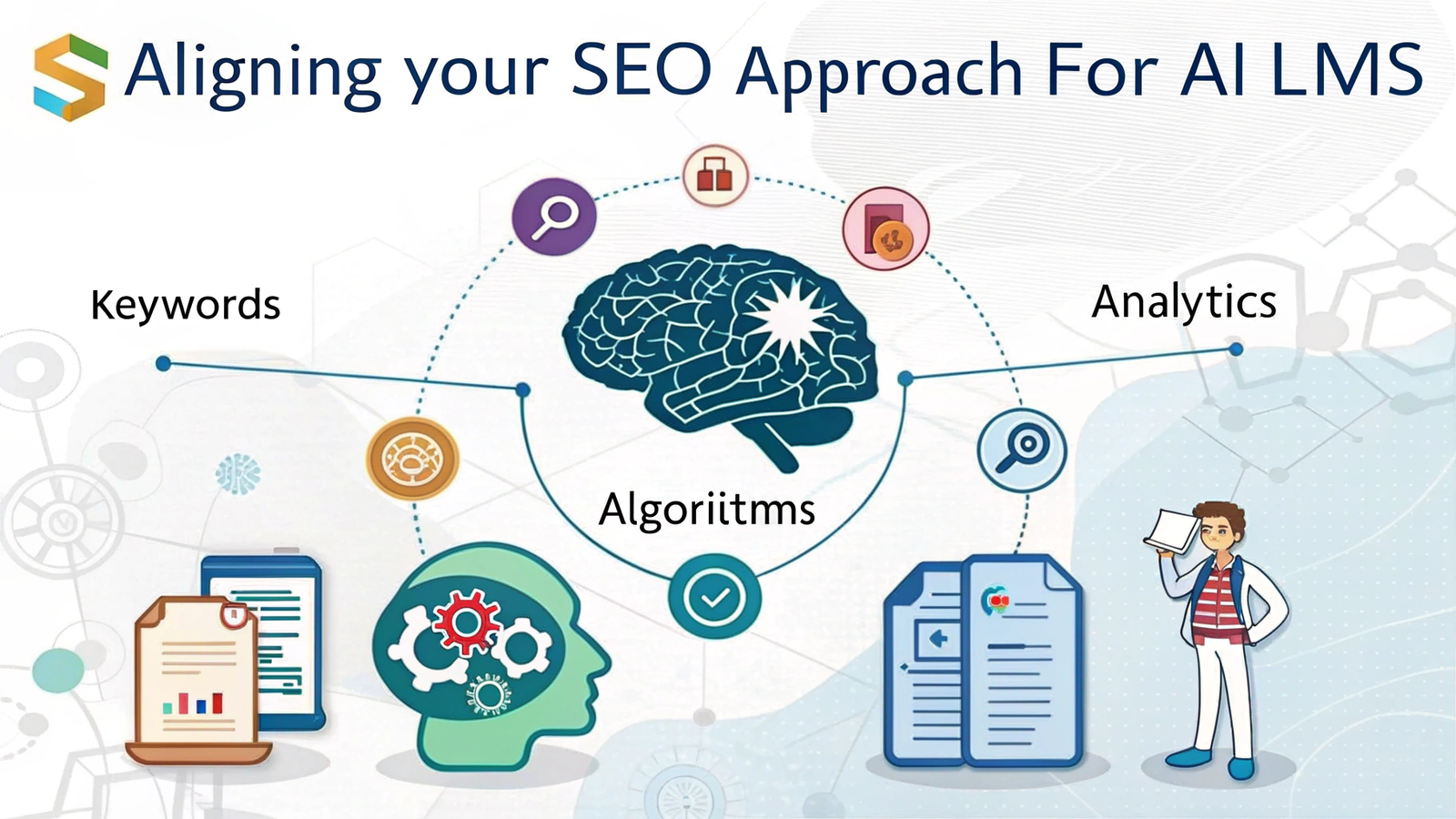The AI revolution has arrived in search, and it’s reshaping everything we know about online visibility. ChatGPT and Perplexity aren’t just tools anymore, they’re becoming the new gatekeepers of information. If your content strategy hasn’t evolved to meet this challenge, you’re already falling behind.
The New Search Landscape
The shift happened faster than anyone predicted. What started as experimental AI tools two years ago has become the default way millions search for information. Google’s AI Overviews, Microsoft’s Copilot integration, and standalone AI search engines are fundamentally changing how users find and consume content.
The tech giants are betting everything on this transformation. Google, Microsoft, and Meta have invested billions, racing to dominate the AI search market. Yet their early attempts have been far from perfect. Google’s AI Overviews faced criticism for spreading misinformation, while AI-generated answers often lack the nuance and reliability of human-created content. This imperfection creates an opportunity for savvy brands to differentiate themselves.
The Traffic Reality Check
Let’s address the elephant in the room: Is AI actually stealing your traffic? The answer varies dramatically by industry and content type.
If your site relies heavily on informational content—definitions, how-to guides, quick answers. you’re likely seeing the impact already. Users no longer need to click through when AI provides instant answers. Your impressions might remain stable or even increase, but click-through rates are plummeting.
The hardest-hit sectors include:
- Educational platforms and knowledge bases
- News publishers competing for breaking story traffic
- Review sites offering product comparisons
- Consulting firms sharing industry insights
This isn’t necessarily catastrophic. Instead of focusing solely on clicks, forward-thinking brands are reframing success metrics. Brand visibility in AI-generated answers might become as valuable as traditional organic traffic for building awareness and trust.
The Current Impact on Organic Performance
The data tells a clear story. Sites optimized for quick, informational queries are experiencing significant CTR drops as AI Overviews satisfy user intent without requiring clicks. Competition for top rankings has intensified because AI systems primarily cite content from Google’s first page results.
Different industries face varying levels of disruption. Finance, education, and health sites see more dramatic shifts than e-commerce or entertainment platforms. The key differentiator? Transactional and experiential content remains relatively protected for now.
To adapt, you need three core strategies: Create content with unprecedented depth that AI cannot easily summarize. Structure your information to maximize citation potential. Build brand authority that transcends traditional SEO metrics.
Your AI Optimization Playbook
Secure Your Position in Traditional Search
The foundation hasn’t changed: you must rank in Google’s top 10 to appear in AI-generated responses. Unlike featured snippets that occasionally pull from lower-ranking pages, AI Overviews strictly favor high-authority content.
Focus relentlessly on E-E-A-T signals. Showcase genuine expertise through author credentials, cite authoritative sources, and demonstrate firsthand experience in your field. Target long-tail, conversational keywords that align with how users interact with AI. Craft meta descriptions that compel clicks even when AI provides partial answers. Build a robust backlink profile from trusted industry sources.
Master Conversational Optimization
AI models excel at understanding natural language queries. Your content must speak their language. Write as people speak, using direct questions and clear answers. Structure information hierarchically with obvious takeaways. Include comprehensive FAQ sections that anticipate user needs. Implement detailed schema markup to help AI systems parse your content accurately.
Build Brand Authority Beyond Links
The game is changing from link-building to brand-building. AI systems increasingly rely on brand mentions and entity recognition rather than traditional link signals. Get your brand mentioned in reputable publications, industry reports, and expert discussions. Foster organic conversations about your brand across social platforms and forums. Execute strategic PR campaigns that position you as a thought leader. Monitor and manage your brand sentiment across the web.
Create Irreplaceable Content
AI excels at synthesizing existing information but struggles with original insights. This is your competitive advantage. Publish proprietary research and data that doesn’t exist elsewhere. Share case studies with specific results and learnings. Incorporate user-generated content that reflects authentic experiences. Develop interactive tools and resources that resist easy summarization.
Use AI Strategically Without Dependence
AI tools can accelerate your workflow without compromising quality. Use them for ideation and initial research, not final content creation. Always add human expertise, fact-checking, and brand voice. Focus on producing fewer, higher-quality pieces rather than AI-generated content at scale. Leverage AI for data analysis and trend identification while maintaining editorial control.
Maximizing AI for SEO Efficiency
Smart SEO professionals aren’t fighting AI they’re harnessing it. Use AI-powered tools for comprehensive keyword research and trend prediction. Let AI assist with content outlining and optimization suggestions. Automate technical SEO audits and monitoring. Analyze competitor strategies and identify content gaps at scale.
The key is maintaining human oversight while leveraging AI’s processing power for tasks that would otherwise consume hours of manual work.
The Blocking Dilemma
Some publishers block AI crawlers to protect their content. This decision requires careful consideration. Block AI bots if your content is behind a paywall, contains proprietary information, or if AI traffic directly undermines your business model. However, blocking AI means competitors will capture the visibility you’re rejecting. For most sites, the benefits of AI citations outweigh the risks.
If you choose to block, add specific user-agent rules to your robots.txt file. But remember: visibility in AI search might become as crucial as traditional rankings.
Common Questions Answered
How can I measure AI’s impact on my traffic?
Monitor organic traffic patterns in Google Analytics and Search Console, particularly for informational content. Track brand mentions and referral traffic from AI platforms. Watch for sudden CTR drops despite stable rankings.
Can I influence which content AI cites?
Yes, but indirectly. Rank in the top 10 for target queries, structure content clearly with definitive answers, and build strong topical authority in your niche.
Is traditional SEO becoming obsolete?
Not at all. AI systems rely on quality sources, making SEO fundamentals more important than ever. The tactics may evolve, but the principles of creating valuable, authoritative content remain constant.
Should I abandon informational content?
No. Instead, enhance it with unique perspectives, original data, and expert insights that AI cannot replicate. Focus on comprehensive guides that go beyond surface-level answers.
Which businesses face the most risk?
Publishers relying on ad revenue from informational queries, educational sites with easily summarized content, and review platforms competing with AI-generated comparisons face the greatest challenges.
The Road Ahead
SearchGPT and similar platforms represent the next evolution in search technology. These tools promise real-time, conversational search experiences with inline citations and personalized results. They’re not just answering questions, they’re engaging users in dynamic information discovery.
This shift will accelerate the need for adaptation. Brands must prepare for search experiences where traditional result pages become secondary to conversational interfaces. Success will belong to those who embrace these changes while maintaining strong SEO fundamentals.
The future of search is being written now. Those who recognize AI as an opportunity rather than a threat, who adapt their strategies while maintaining quality and authority, will thrive in this new landscape. The question isn’t whether to adapt—it’s how quickly you can evolve to meet users where they’re searching tomorrow.


